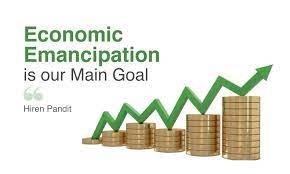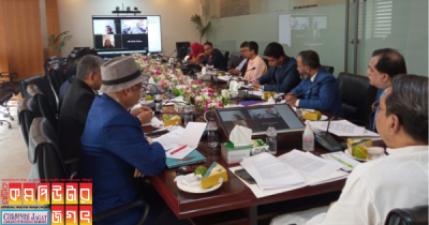The new year 2022 started with the commitment to implement the goal of sustainable development without Leave No One Behind by achieving the 2030 agenda. Multiple mega projects will be inaugurated this year. The construction work of 10 mega projects and 100 economic zones including the Padma Multipurpose Bridge is going on at a fast pace. These 10 mega projects will play an important role in laying the foundation for maintaining a high growth trend in the future. Government's 10 mega projects Padma Multipurpose Bridge, Metrorail in Dhaka, rail link to Padma Bridge, construction of railway line from Dohazari in Chattogram to Ramu via Cox's Bazar and from Ramu to Ghumdhum, construction of Rooppur nuclear power plant, construction of Materbari coal power plant, construction of LNG terminal, Rampal coal power plant, Payra Port and Sonadia Deep Sea Port. Work on all these projects will be completed and inaugurated this year.
In the meantime, the test journey of the long-cherished dream metro rail started on August 29, 2021. Subsequently, after the test journey of Metrorail, on 12 December 2021, it ran from Uttara to Agargaon. However, passengers will continue from this year's Victory Day. With the installation of the 41st span, the entire main structure of the 6.15 km Padma Bridge became visible on December 10, 2020. The dream Padma Bridge is scheduled to be opened to the public on June 30 this year (2022). On the other hand, the Karnafuli tunnel project is expected to be completed in December 2022. So far, the progress of the project is more than 80 percent. The section from the airport to Tejgaon Railgate via Banani will be custom-built by December this year (2022).
Millions of people in this country have had to live with poverty, misery and poverty. Bangabandhu stood up against the rulers and exploiters to alleviate the sufferings of the people of this neglected and cherished country. He emerged as an uncompromising, fearless, courageous and compassionate leader to the people of this country. The common people of Bengal accepted him as the leader and started the difficult path of movement and struggle. It was then that Bangabandhu spoke to the people of this country about the immense potential of Bengal. There are endless possibilities hidden here. It is possible to grow gold here if you want. If the diligent and enterprising people of Bengal make an effort, it is possible to build a country of gold by making proper use of talent and labor. Responding to the call of Bangabandhu, the people of Bengal have liberated this country by crossing the path of long struggle and liberation war.
Bangabandhu took over as the Prime Minister and began the task of rebuilding the war-torn country in 1972 on 12 January. Only three and a half years later, on 15 August 1975, when he was brutally assassinated, the development of the country came to a standstill again. Bangabandhu's daughters Sheikh Hasina and Sheikh Rehana survived the barbaric assassination on 15 August 1975 as they were abroad. After a long 6-year exile, Sheikh Hasina came to the country in 1981 with the responsibility of the Awami League. She has taken the steering of the Awami League in the worst of times.
She has come a long way in the struggle for democracy. She has brought Awami League to power as a popular party after 21 years in 1996. She formed the government and adopted the Fifth Five Year Plan (1996-2002). The impossible task that Sheikh Hasina made possible by forming the government in 1996 was to bring the killers of her family to justice and later in 2010 to bring the war criminals to justice. She proved that she has no alternative to developing democracy in Bangladesh. Her honesty, devotion, dedication, rational mentality, strong morale, wisdom, and extraordinary leadership have established Bangladesh at a different altitude in the world arena.
The Awami League has always been playing a politically vocal, defensive role against all forms of exploitation, deprivation, injustice, oppression. People's fortunes improve when this party is in power. The 72-year history of the party bears witness to that truth.
PM Sheikh Hasina has given 4 milestones, the first is the vision 2021 of Digital Bangladesh, the second is to achieve the SDGs in 2030, the third is to build a developed Bangladesh in 2041 and the fourth is the Delta Plan for 2100. Architect of Digital Bangladesh Sajeeb Wazed Joy has been making an outstanding contribution to the implementation of these plans at a young age.
She signed the Hill Tracts Peace treaty, built the Bangabandhu Bridge over the Jamuna and took steps to alleviate poverty and achieve food dependence. She achieved great success in alleviating poverty by adopting and implementing social safety net programs for distressed people, such as distressed women and widow allowance, old age allowance, disability allowance, freedom fighter allowance, shelter project for the homeless, one house one farm project.
Taking over as Prime Minister for the second time on January 8, 2009, she worked tirelessly to implement the Sixth Five-Year Plan, the MDGs and the First Perspective Plan. She was re-elected in the February 5, 2014 elections and got a chance to take the country forward by forming the government. Prime Minister took 10 special initiatives. Prioritizes poverty, hunger-free society, housing, education, medicine, employment, social safety net and digitization in the country.
The shelter project has provided shelter to 3,20,072 families till now. In the Mujib birth centenary, she has given 66,189 families a single home as a gift of the year. About 14,500 community clinics are at people's doorsteps to provide health care. Provides scholarships and stipends to more than 3 crore students, various allowances to 6 lakh people, rice worth taka 10 lakh to 50 lakh families, subsidy to farmers in the agricultural sector, announces various incentive packages of taka 1,21,000 crore in the country's economy during the COVID-19 pandemic have been playing a significant role in poverty alleviation.
Bangladesh has achieved many unprecedented successes. Our beloved motherland is moving forward by overcoming various obstacles. Prime Minister Sheikh Hasina has taken up several mega projects. The Padma Multipurpose Bridge, whose work is already 91 percent completed the last span was set up in December 2020 and travel across the bridge will begin in the mid of this year (2022). This will revolutionize communication with the South part of Bangladesh. Bangabandhu Satellite-1 contributes to boosting the country's economy by providing all citizens with a wide range of telecommunications services (direct-to-home TV, radio, telemedicine, education, and internet access), Rooppur Nuclear Power Plant, Dhaka Metrorail Project, Matarbari Deep Seaport Construction Project, Rampal Coal Based Power Project, Bangabandhu Tunnel Construction Project, work of 100 economic zones is in progress, elevated expressway, more than three dozen high-tech parks and IT villages are being built. The eighth Five Year Plan has been adopted. The villages are being equipped with all civic amenities. Today we have become a country with self-respect in the world holding our heads high.
The UN has announced the transition of Bangladesh from LDC to a developing country. On the golden jubilee of independence, the UN has made a final recommendation to make Bangladesh a developing country. According to the World Economic Forum, Bangladesh will be the 24th largest economy in the world by 2030. According to the second perspective plan, in 2031, there will be no one to call Bangladesh extremely poor.
Bangladesh moves to develop countries. Per capita income is 2554 USD, human resources, and economic fragility- the criteria for these three indicators determine the eligibility of developing countries to be listed. Bangladesh has achieved the desired qualifications in these three indices. Even in the COVID-19, Bangladesh's per capita income has stunned the whole world by maintaining economic continuity. Which has multiplied the acceptance. There have been positive changes in women's education, women's empowerment, healthcare, maternal and child mortality. Women are now contributing at all levels including social, political, and economic. Women in rural areas are not lagging in the touch of technology. They are also moving forward in parallel. Which has brightened the image of Bangladesh in the world. Bangladesh is moving forward on the path of building a golden Bengal of Father of the Nation Bangabandhu. The young generation is the leader of the future state. To turn the young generation into human resources, Science, Technology, Engineering, Arts, and Mathematics (STEAM) education is being introduced for career-oriented education. The state must give due value to the knowledge, skills, experience, desires, and opinions of the youth.
Prime Minister Sheikh Hasina has given 4 milestones, the first is the vision of Digital Bangladesh, the second is to achieve the Sustainable Development Goals in 2030, the third is to build a developed Bangladesh in 2041 and the fourth is the Delta Plan for 2100. Architect of Digital Bangladesh Sajeeb Wazed Joy has been making an outstanding contribution to the implementation of these plans at a young age.
One of the dreams of the Father of the Nation about the Bengalis was to liberate the motherland and build a hunger-free, poverty-free golden Bengal. The first dream was materialized by Bangabandhu. The greatest achievement of the Bengalis is the independence of Bangladesh, which he has brought. At present, under the dynamic leadership of Prime Minister Sheikh Hasina's wise and visionary leadership, Bangladesh is fast moving towards realizing the second dream of the father of the nation. With dedication, honesty, and efficiency Bangladesh is surpassing many countries in the world today. All citizens have to work for a developed Bangladesh, free from hunger and poverty (achieving SDG-1 end poverty and SDG-2, Zero Hunger) and uphold the spirit of liberation war and secularism which Father of the Nation Bangabandhu Sheikh Mujibur Rahman dreamt of. Bangladesh has limited resources, more population compared with its geographical borders. Bangladesh today is a role model of development to the world.
Hiren Pandit is a Research Fellow, BNNRC







.png)






০ টি মন্তব্য